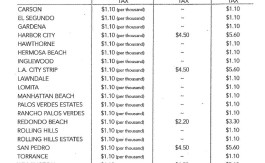Understanding The Tax Deductions for Rental Property
We thought this post was perfect timing for Tax Season! If you are thinking about buying rental properties, then you are probably wondering what benefits you will have other than the rental income. Rental homes can be a houseboat or a trailer or anything as long as there are sleeping, cooking and bathroom accommodations. And the location of the home does not matter – even if it is outside of the United States.
There are many pros and cons to owning a rental property but some of the best benefits are the tax deductions that become available to you. Just remember to save all of your receipts and any other documentation you may have for the expenses you have incurred.
Here are some of the most common items you can use as a tax deduction if you own rental property.
• Advertising
• Cleaning
• *Maintenance
• Any commissions you pay to a rental agent
• All homeowners association dues or the like
• Your insurance premiums for the home
• Any legal fees you have incurred
• Your mortgage interest
• Taxes
• Utilities
• Accountant fees
• Some travel expenses – there are some restrictions
• Mileage
*The IRS has different rules for repairs versus improvements. You can write off repairs; which is anything that fixes your property to keep it in good working conditions. However, you cannot write off improvements per se; which is any cost that adds value to your rental property.
An example of a repair would be patching a leaking roof. An example of an improvement would be actually replacing the roof. If you have the cost of an improvement, then you can use that expense as a deduction but it must be depreciated over several years. You can also use the actual depreciation of the home over time due to wear and tear. But these rules are very tricky and it is recommended that you seek professional tax advice before proceeding with these types of deductions.
This article has been written as a general overview of this topic and should not be construed as tax advice or legal advice. Always consult a tax professional for this type of advice.
Thank you for Reading,
The Inman Team







